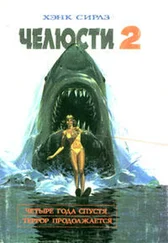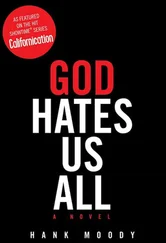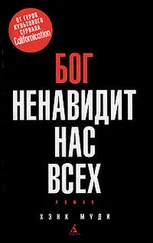I felt like it was making it seem like allowing for different kinds of people was a burden. But then the video turned it around. Over illustrated images of happy families of all sorts the narrator said, “The reality is, the benefits of this far outweigh the costs. If we do not let people know that it is possible to be different, the ones who are different will live their entire lives in a kind of cultural prison. And there are so many ways to be different that almost everyone ends up feeling imprisoned by some aspect of a society that only allows for the default path.
“The problem is that, as progressives, we pretend that there are no costs, and that no one is losing anything,” the video continued. “But, of course, some people do lose—especially those whose power was tied up, not in their wealth, but in fitting comfortably into the clear path. Now, these people have only lost what they should lose, but that is also true of other forms of concentrated power. We’re in a system that tells, for example, the wealthy that they deserve all their wealth and it should be protected through force. So, naturally, the newly alienated feel singled out and victimized.
“The solution isn’t going back to the one clear path. The solution is, everywhere and always, the decentralization and redistribution of all forms of power.”
The video went from making me think it was too centrist, to pushing right up against being too radical. Then I went back and watched the original “Twinkle, Twinkle” video, and with those in my head, here’s the video script that flopped out of my brain at 1 a.m.:
Hey, everybody, it’s Andy.
The fact that it has been only a year since the Carls first arrived does not seem real to me. It feels like centuries, it feels like they have always been here. And, in a sense, that’s true. We’ve rewritten our story to match some new evidence. We didn’t just stop being alone in the universe when Carl arrived, we stopped ever having been alone.
We weren’t alone in the universe when the White Sox won the World Series in 2005. And we weren’t alone when the White Sox won the World Series in 1906. They existed when Jesus was born and when the first person spoke the first word. This doesn’t just change our present and our future, it changes our past. And I know that sounds silly, nothing can change the past. But we don’t imagine the past as it was, that’s impossible, there’s just too much past to know, so we cobble together a story that makes sense to us from what we know. And when we get a big new piece of information, that changes what narratives make sense.
The Carls may not have always been here, but they certainly existed. They were out there somewhere, even if they weren’t standing on street corners.
It would be easy to just make a video that’s about how the Carls brought the world together, because in some ways that’s true. But also, it’s a huge burden to live in a world where we don’t know how we’ve been physically changed and psychologically manipulated by an outside intelligence.
We can either intentionally ignore it or accept that meaning is different now.
And this is a burden. I watched April love Carl, and I was always willing to go along with her trust, but there was a cost, and we are paying it now. The cost is in well-trod stories that now make less sense. It’s not that the new stories are worse, it’s just that we haven’t had time to settle on any good ones, and so now, many of us are adrift. And these moments in history when things stop making sense, they don’t tend to be stable times. We need strong stories, but we still must be very wary of those who offer them to us.
But the strongest story has not changed. The meaning of life is still, as it was, simply other people. When we care for each other, we are always in a place that matters. That is what I am thinking about on this anniversary. There has been a cost to our new knowledge, but it may not be as deep or as lasting as it feels right now.
Jason and I had set up encrypted chat because I was a high-profile target for hackers, and while I didn’t think I did or said anything that could be damaging to myself or other people, the last decade was littered with people who had been wrong about that.
I sent him a message:
Hey, I just finished recording a video. I’ll give you $500 if you edit it and upload it on the Carliversary tomorrow.
He replied almost immediately.
You got it, I can’t wait to see it, honestly.
It’s about the cognitive and societal burden of the Carls. I guess I didn’t feel like making a super happy one.
Hah. Well, remember when you told the internet to be nice to each other? Super happy doesn’t always turn out great. Is this video at all inspired by the new one from The Thread?
Hah, shit. I’m that transparent?
“Do you know who he is?!” Jason shouted from the other room. I got up and walked into the living room, where Jason was sunk deep into our couch on his computer.
“I’m as clueless as everyone else.”
“It’s fucking genius. You think a progressive white guy could make a video about the societal burden of social justice without getting crucified if he wasn’t completely anonymous?”
“I’m pretty sure he is getting crucified for that video right now.”
“His ideas are, absolutely. And I don’t mind that. But no one is sending letters to his house or brigading him off Twitter because there’s literally no way to find out who he is. No one even knows if he’s a white guy! He takes identity out of it completely.”
I sat down on the couch. “He’s definitely a white guy,” I said.
The Thread was so serious about anonymity that he hired a different voice actor every episode. People had found some of the actors, and every one had been contacted and paid anonymously. He didn’t turn on ads, and there was no way to send him money, so, legally, The Thread didn’t even exist. The Thread understood how fame worked and had run with it.
It was also genius marketing because it felt so mysterious. Like, was this person famous? Was he wealthy? Was he someone I’d met? But it was also something I understood all too well. I was attacked all the time for being a professional manipulator of public opinion, and that makes sense. I’d made a video a few months after the warehouse about how kindness was important and people on the internet were too cruel to each other. I maybe went a little bit overboard with the criticism, and the response was … a lot.
Turns out, there are lots of people who are unkind not just because it’s fun, but because they believe it’s the right strategy. And getting on those people’s bad side is unpleasant because of how they believe very strongly that being a dick is a vital part of making the world a better place. And hell, who knows, maybe they’re right.
“Yeah, I mean, he’s probably a white dude,” Jason replied.
“But you’re right that he’s able to say things he wouldn’t otherwise be able to say by removing his identity. It’s fascinating and also a little terrifying.”
“And also already being copied,” Jason said.
“Really?”
“Yeah, there’s a channel called Common Dissent that has the exact same MO. All animated, anonymous host, no ads. He doesn’t respond to anything The Thread says directly, but he’s gathering steam the same way, and in a different direction. It’s grown a lot in the last few weeks.”
“I guess we’re at the point in history where being a person has become a liability. Better to just be a disembodied jumble of ideas.”
“And then you just walk away and let other people argue on your behalf.”
“ ‘Other’ people or computer programs pretending to be other people.”
Читать дальше












